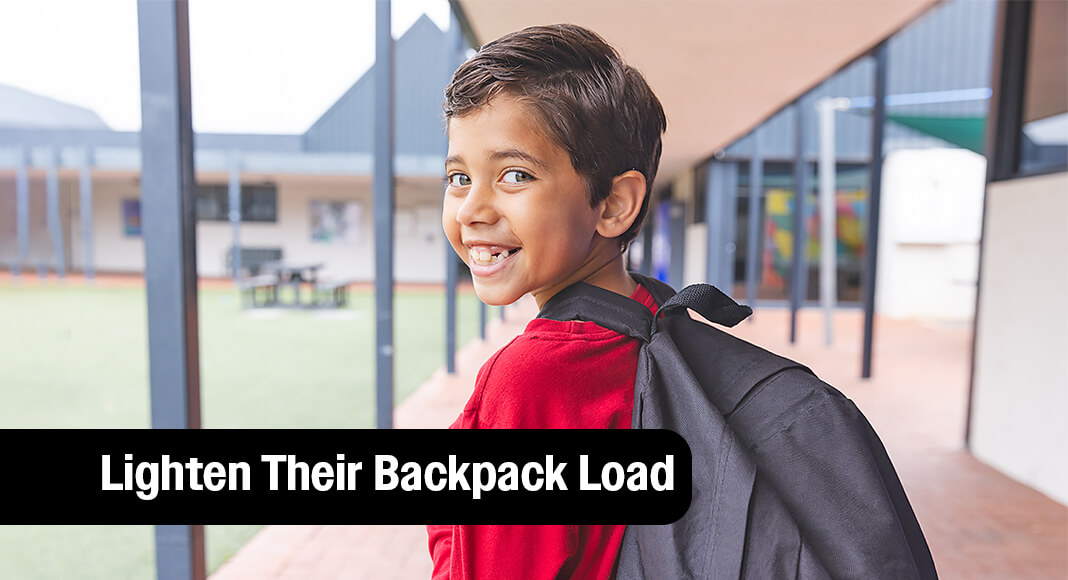
Mega Doctor News
By Children’s Hospital Los Angeles
Newswise — Did you know the American Academy of Pediatrics recommends that your child’s backpack weigh no more than 10% to 15% of their body weight?
For an 80-pound child, this means that the backpack should weigh no more than 8 to 12 pounds. This isn’t much considering that the average textbook weighs about 3.5 pounds. Backpacks that are too heavy can cause pain, lead to serious injury, and affect posture. Children can end up with injuries in their joints, back/spine, muscles, neck, and shoulders from excessively heavy backpacks.
With help from pediatrician Alice Abrahamian, MD, a member of the Children’s Hospital Los Angeles Care Network, we answer key questions and offer a series of recommendations parents can apply to make sure that their child’s backpack is an asset, not a hazard, during the school year.
Choosing the correct backpack
| The first step to backpack safety is choosing the correct backpack. Choose function over fashion. Pediatricians recommend lightweight backpacks with: |
| Two wide straps. Backpacks with thin straps can dig into the shoulders and compromise circulation. It is best to avoid shoulder or messenger bags because these don’t always distribute weight appropriately. |
| A padded back, to protect your child’s back from sharp corners |
| Multiple pockets, to distribute weight more evenly |
| A waist strap, to provide more help with weight distribution |
Roller bags can be helpful but may be problematic if your child’s school has stairs.
Do your children pick their backpacks up properly?
Teach children to lift their backpacks by bending first at the knees with a wide stance, and to refrain from bending at the waist.
How do your children wear their backpacks?
It’s important to pay attention to how your children are wearing their backpacks. Are they using both straps or just one? If their backpacks have waist straps, do they use them? The shoulder straps should be tightened so the pack fits close to the body and the backpack falls in the middle of the back. Never allow the backpack to sag down toward the buttocks. The heaviest items should be placed in the innermost compartment closest to the back. Also encourage your child to use all the pockets, which helps to distribute the weight a bit better.
There may be an issue if your child hunches forward when wearing their backpack, struggles to get their pack on and off, or is complaining of back pain. If your child feels any tingling, numbness, or weakness in their arms or hands, it may be a sign that the straps are too tight or narrow. If you notice any problems, make sure to talk to your child’s pediatrician.
Tips for keeping backpacks lighter
- Encourage your child to only carry the necessary items. Make sure you have a set of necessary school supplies both at home and at school so that these items don’t need to be toted back and forth. Non-academic items such as iPods, Game Boys, and other toys also add unnecessary weight to your child’s backpack, not to mention they are often banned from school.
- Plan ahead. Many kids cram all of their textbooks into their backpack to prevent frequent trips to their locker, to avoid forgetting something, or because they just don’t think about what is needed in advance. Talk to your child about planning ahead so that unnecessary books don’t get toted around all day or are brought home when they aren’t needed for homework.
- Choose paperback. If you have the option of purchasing hardcover or paperback, choose the paperback, as it is generally a lighter option.
- Find alternative access to textbooks. Some textbooks come with complete digital access via an e-book, so it is not necessary to bring the book back and forth. Check with your child’s school about online/app access.
If your child complains of back or shoulder pain, or if you notice changes in your child’s posture, make sure to talk to your pediatrician. Also, talk to your child’s school for ways to help keep backpacks lighter. The school may be able to offer a second set of books to keep at home, some extra time between class so your child can return to their locker, or, as noted above, online access to books.










